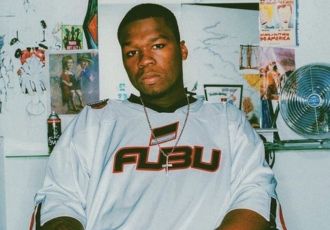
You know that feeling when someone's presence simply doesn't add any spark to your life? They're there but they come and go, they ghost you - they're not treating you right.
Imagine being able to channel that indifference when someone isn't treating you with respect or kindness.
Enter the "Boring Uncle Theory," a concept that helps you safeguard your emotions and prioritize your well-being. Intrigued? Let's dive into this fascinating approach to relationships.
What is the Boring Uncle Theory?
The Boring Uncle Theory is a dating concept, introduced by TikTok creator Margarita Nazarenko, that emphasizes knowing your self-worth and feeling great about who you are. When someone is treating you poorly, the theory encourages you to react to them as if they were a boring uncle at a family gathering.
You acknowledge them politely, but you don't give them your full attention or emotional investment. If they're ghosting you or disrespecting you, your reply is tempered with a lack of emotion, thinking of them as dull or uninteresting.
Example of the Boring Uncle Theory:
You know when you're at a wedding and that boring uncle starts telling you about their job or some story you've heard a thousand times. You nod, you smile - you act polite. That's the Boring Uncle Theory, give only a little - but never too much.
Imagine you've been seeing someone who suddenly starts ghosting you or makes disparaging comments. Instead of feeling hurt or engaging with negative emotions, you adopt the Boring Uncle Theory. You respond to their messages with politeness, but without enthusiasm, just as you might with a mundane conversation with a distant relative. Your lack of emotional investment protects you from unnecessary stress or hurt.
How to Use the Boring Uncle Theory: A Step-by-Step Guide
Identify the Behavior
Recognize when someone's actions towards you are disrespectful or unkind. It's the subtle cues, such as exhibiting avoidant behavior, ignoring your messages, breadcrumbing you or making lame comments, that signal the need to implement the Boring Uncle Theory.
This step is crucial as it sets the tone for how you'll respond, allowing you to detach emotionally from the situation.
Awareness is the first step towards regaining control over how you're treated.
Assess Your Feelings
Understand what emotions you're feeling and decide not to let them control your reactions.
Whether it's frustration, anger, or disappointment, acknowledging these emotions without letting them take over is key.
This assessment empowers you to act from a place of strength and calm, rather than being impulsively driven by raw emotions. You allow yourself to feel without becoming a victim to those feelings.
Respond Calmly
Treat the individual like a boring uncle, with polite acknowledgment but without emotional investment.
This response isn't about being cold or distant but about maintaining an even keel. By adopting a more neutral stance, you're not fueling the fire of conflict or giving the other person power over your emotions.
You continue the conversation as you would with anyone who doesn't hold significant importance in your life.
Maintain Your Dignity
Continue to interact without giving too much of yourself, protecting your emotional well-being. By staying engaged at a superficial level, you don't allow yourself to be pulled into drama or negativity.
This stance allows you to maintain your self-respect and boundaries without being confrontational or creating unnecessary conflict. You preserve your energy for relationships and interactions that truly matter.
Evaluate the Relationship
If the behavior continues, take a step back to consider whether this relationship aligns with your values and needs. Are these actions an anomaly, or do they form a pattern? Is there room for growth and change, or is it time to move on?
This evaluation provides a clear perspective on the relationship's direction and helps you make informed decisions about continuing or ending the connection.
Stay True to Yourself
Always prioritize your self-worth and emotional health. This doesn't mean you become unfeeling or distant from everyone; rather, you choose where and how to invest your emotional energy. By staying true to what you value, you create space for genuine connections and foster a sense of self-assurance.
This practice helps you navigate the ups and downs of relationships with wisdom and resilience, keeping your own well-being at the forefront.
Final Thoughts
The Boring Uncle Theory is more than just a whimsical concept; it's a tool for understanding and asserting your worth in relationships.
By adopting a neutral stance and treating those who mistreat you with polite indifference, you empower yourself to navigate relationships with grace and dignity. It's a practice of self-respect and emotional intelligence, a reminder that you deserve nothing less than kindness and consideration.
In the grand landscape of connections, knowing when to employ the Boring Uncle Theory can lead to a more fulfilling and emotionally balanced life.



